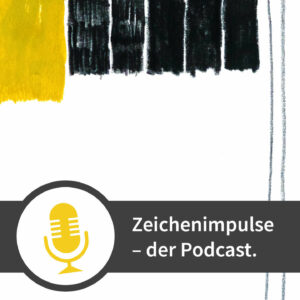H.E.I.M.A.T. in the intercultural dialogue – 2008

AS_TIDE NETWORKS
EU cultural project for intercultural dialogue in Graz in October 2008
Website: www.nextcommunication.eu
As_Tide Networks was created by Fondazione Pistoletto – Biella in cooperation with Next – fine arts club, managed by Luise Kloos, and the partners DeBuren – Brussels, Hangar – Barcelona and St. James Cavalier – Malta, with the vision of establishing a European network for intercultural dialogue. Artists and Scientists are invited to participate in shaping the social transformation of society. Their creative qualifications enable them to function as catalysts and mediators for new ways in the intercultural dialogue.
We are confronted with a new type of migration: parallel to the internal European migration runs the migration from poor to rich. Mobility characterizes our age, as a privilege and as a compulsion. What happens when mobility in all its aspects, from exile and economic migration to flexibility in work, takes control of entire societies? What is the meaning of “home” of the individual in a globalized world?
From 10th – 19th October, artists from various disciplines from the five partner-organizations will come to Graz to participate in an “artists in residence” project, to work with the topic “heimat”.
Along with the artist workshops there will be several interesting public events, organized by next – fine arts club in cooperation with Dr. Astrid Kury of the Akademie Graz. The highlight will be a discussion about “portable cultures” between artist Michelangelo Pistoletto and philosopher Wolfgang Welsch. This event is part of the “Grenzgänge” – discussions at the Schauspielhaus, Graz, on 13th October 2008.
During the “artists in residence” program, the participating artist will get in contact with local institutions, which have been dealing with different aspects of the question of integration professionally over the past several years: ISOP, St. Andrä School, Megaphon and the Pfarre St. Andrä, whose Reverend Hermann Gletter has made available the artists’ workspace. New ideas and concepts to open questions about integration in Graz will be developed. The area around Annenstraße will play a central role for these efforts.
As part of the encounter with the students and teachers of the St. Andrä School under the administration of Principal Irmi Otto, the artists will get a guided tour of the city of Graz, to give them an insight into the students’ environment.
List of participating artists:
- From Austria: Lore Heuermann, Aurelia Meinhart, Christina Medina, Anselm Schaufler, Manfred Stern, Marcel Fotter, Susanne Schweiger, Tina Lamm, Christoph Schwarz
Ensemble Zeitfuss: conductor – Edo Micic - From Italy: Alessandra Nicolini and Davide Skerlj
- From Croatia: Josip Zanki, Jelena Dabic and Fedor Vucemilovic
- From Spain: Yolanda de Los Bueis
- From Holland: Elisa Marchesini
- From Sweden: Max Valentin
- From Finland: Reino Koivula
- From Malta: Katya Borg
There are several distinguished guests with lots of experience in intercultural dialogue:
Liz King: Initiated and choreographed important projects with Roma in Oberwart
Branco Franceschi: Curator and director of the Croatian artists association
Raymond Saner: Professor for communication psychology in Geneva; he will moderate the “open space” with the topic “Heimat” at the Literaturhaus on 12th October 2008.
The artists will approach the topic backed up with their background in art, their personal experiences, perceptions and desires. Lore Heuermann for example writes:
“Home is the place, where I’m understood without language. Home are the people, whom I don’t have to explain who I am. I don’t have to offer any explanation to justify my existence. Home is to be able to listen and see, aimless and undisturbed. Home is the feeling of a big silence and stillness, which allows me to me myself.”
Public Program:
- 11th October 2008, 11 am: steirischer herbst, Neutorgasse: Stay – Leave – City Walk
- 12th October 2008, 2 pm: Literaturhaus: open space discussion “Heimat”, Moderation Raymond Saner
- 13th October 2008, 7:30 pm: Schauspielhaus: “portable cultures” – discussion with Michelangelo Pistoletto and Wolfgang Welsch
- 18th October 2008, 19.30 Uhr: Event-room Pfarre St. Andrä: Presentation of the artists’ work
H.E.I.M.A.T. as part of
AS_TIDE – EU cultural project supported by the EU
next – Verein fuer bildende Kunst is member of the EU Project AS_TIDE with the partners: Cittadellarte – Biella, DeBuren – Brussels, Hangar – Barcelona and St. James – Malta
WHAT IS AS_TIDE
AS_TIDE NETWORKS is a project that aims at constituting a European network of cultural centers and operators dedicated to intercultural dialogue and socio-economical development, to analyze and promote the sense of collective identity through different cultures in Europe.
www.astide.eu
In this context, and in a vision enlarged also out of Europe borders, art, and its universality, becomes the tool, the language, the mediator, the source of highly innovative approaches and processes to the social transformation. Art can be viewed not only as self-expression of the artist as an absolute but in a plurality of pronunciations about imposed visions of the world, the society and the history. In fact, a certain degree of freedom and an innovative creative approach “by profession” allow the artists to play a new kind of role in the social fabric and in the society they live in, the one of catalysers and facilitators of social transformation with an etherodox approach to art.
